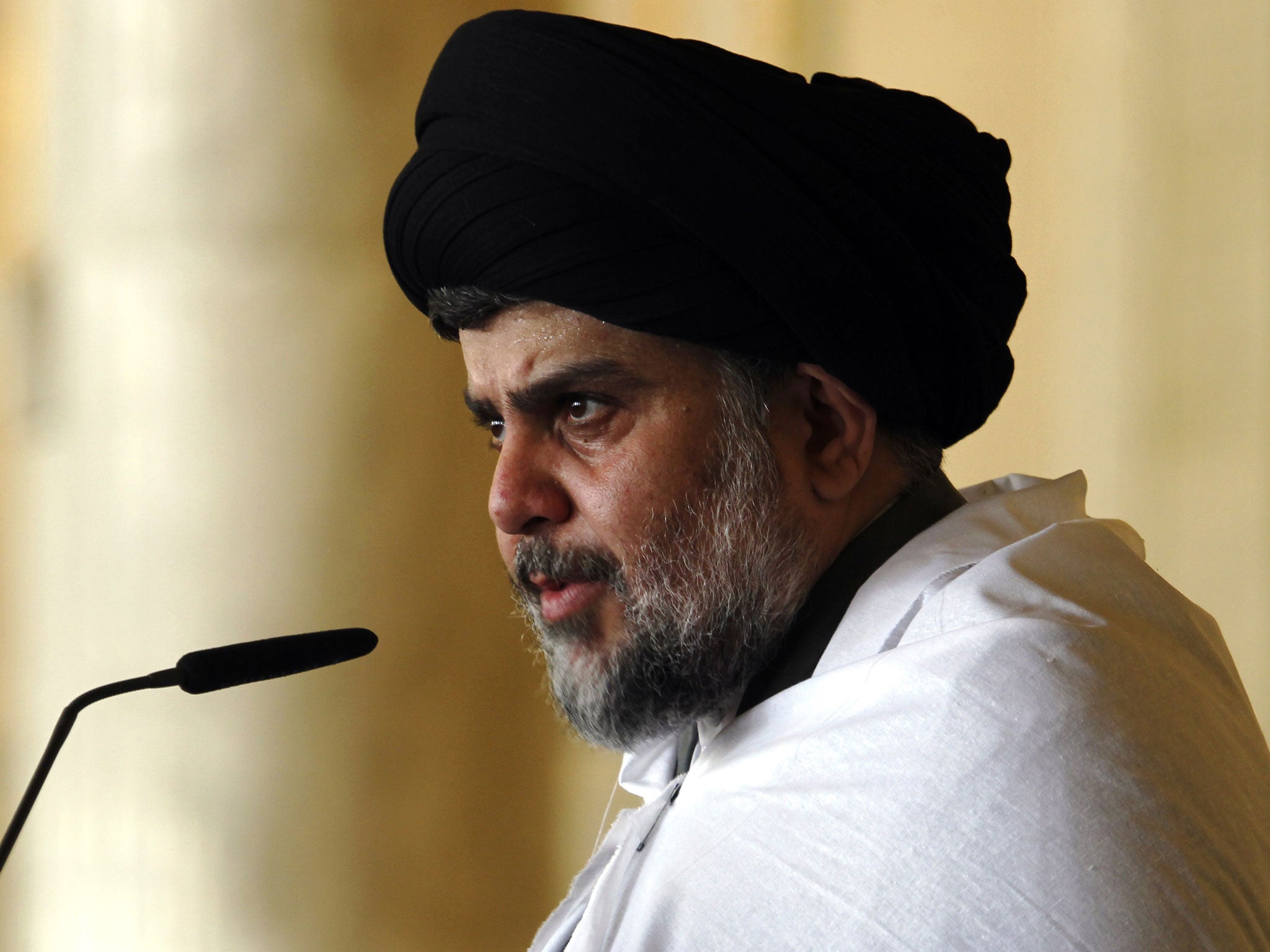Isis defeat in Mosul could spark 'genocide', leading cleric warns
Muqtada al-Sadr warns of renewed sectarian violence once Iraqis lack common enemy

The defeat of Isis in Mosul could spark “genocide” in Iraq as sectarian groups clash, a Shia leader has warned.
Muqtada al-Sadr, a powerful cleric, political figurehead and warlord, believes divisions between Sunni and Shia Muslims will worsen when Iraqis lack a common enemy.
“I'm afraid that the defeat of Daesh [Isis] is only the start of a new phase,” he told Middle East Eye.
“My proposal is inspired by fear of sectarian and ethnic conflict after Mosul's liberation,
“I want to avoid this. I am very proud of Iraq's diversity but my fear is that we may see a genocide of some ethnic or sectarian groups.”
Mr Sadr is calling for dialogue between Iraq’s Shia-led government and Sunni politicians, as well as Arab and Kurdish representatives to avoid new conflict.
He previously warned of a “dark future” for Iraq in an interview with The Independent in 2013, when he predicted that its people would “disintegrate” amid worsening sectarian hostility between Sunni and Shia Muslims.
Mr Sadr had little hope of tensions easing after decades of a “constant cycle of violence” seeing Saddam Hussein’s rule followed by the US invasion and then the rise of al-Qaeda in Iraq and its successor Isis, which frequently bombs Shia civilians.
It is staging a last stand in western Mosul - its last city stronghold in Iraq - after months of advances by international forces that face residential areas ridden with guerilla fighters and explosives.
Mr Sadr wants wants all militias, including his own anti-Isis Saraya al-Salam militia to be disbanded after their expected victory. It is the successor of Mr Sadr’s Mahdi Army, which he stood down in 2007 following alleged atrocities as the group fought against the US occupation of Iraq.
They are not among the groups fighting alongside Iraqi government forces, Kurdish Peshmerga and foreign allies to drive Isis out of the city of Mosul.
The most prominent militia is the predominantly Shia Popular Mobilisation Units (PMU), who were formally integrated into government forces in November but have been continually accused of war crimes against Sunni civilians.
Troops from Britain, America and other members of the US-led coalition are also on the ground in Iraq, as well as militias backed by the Iranian government.
In a document detailing Mr Sadr’s proposal for peace, he demands Iraq “must request all invading and friendly forces to leave Iraq”, regardless of their affiliation.
His family were enemies of the Saddam regime, which assassinated his father and two brothers in 1999.
Mr Sadr was put under house arrest until the US invasion, which he then fought to oppose.
One battleground was Basra, where his Mahdi Army seized parts of the city from British forces in 2004 and forced the UK to withdraw in 2007 while battling in other parts of Iraq.
While still opposing all foreign intervention, Mr Sadr has now restyled himself as a peacemaker and politician, leading huge and occasionally violent anti-corruption protests in Baghdad.
Amid growing talk of a power struggle with Iraqi Prime Minister Haider al-Abadi in December, the pair met in December and agreed to cooperate on political reforms after “fruitful” talks.
Join our commenting forum
Join thought-provoking conversations, follow other Independent readers and see their replies
Comments
Bookmark popover
Removed from bookmarks